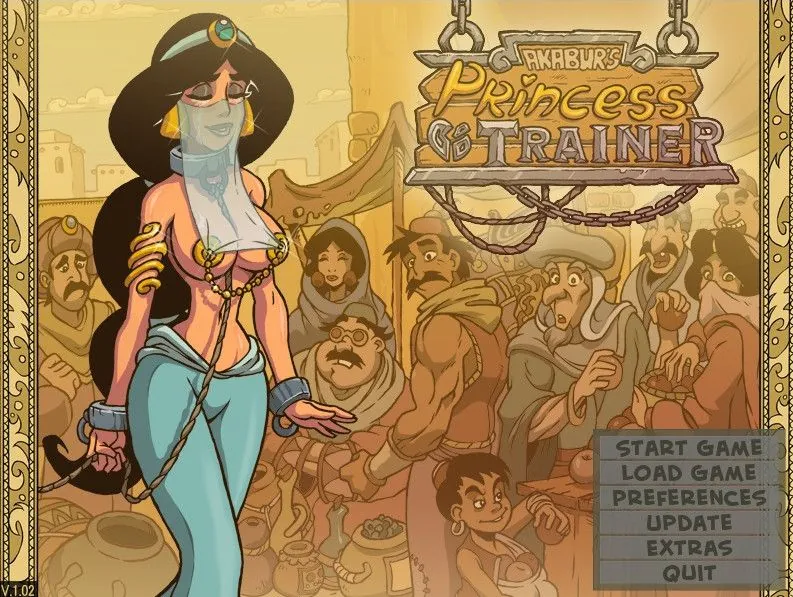
Leaving DNA
Play Leaving DNA
Leaving DNA review
How choice mechanics and mature storytelling redefine interactive fiction
In an era where visual novels often prioritize titillation over substance, Leaving DNA emerges as a complex hybrid of erotic content and hardboiled crime drama. This adult game from developer Impious Monk challenges players to navigate moral ambiguity while investigating a cold case tied to protagonist Rockford’s mysterious family history. Through its branching narrative system and psychological character studies, the title redefines expectations for mature-themed interactive fiction.
Gameplay Mechanics and Narrative Structure
The Consequences-Driven Choice System
Picture this: you’re staring at your screen, sweat dripping down your temple, because the game just asked you whether to save a key witness or chase the fleeing suspect. Both choices feel like they’ll blow up your case—and your chances with the sharp-tongued detective you’ve been flirting with. Welcome to Leaving DNA, where every decision isn’t just a button click—it’s a grenade tossed into your story. 💥
This isn’t your grandma’s “choose-your-own-adventure.” The branching narrative visual novel here thrives on choice-driven consequences that ripple across both crime scenes and bedroom scenes. For example, blowing off a suspect’s alibi to grab drinks with your love interest might net you a steamy evening 🍸🔥… but also leave critical evidence buried. I learned this the hard way when my character missed a bloody fingerprint because I prioritized a rooftop kiss. The case went cold, and my romance? Let’s just say trust issues ensued.
What makes Leaving DNA stand out is how it weaves adult content integration into the stakes. A flirtatious dialogue option isn’t just about scoring points—it could unlock new leads or blindside you with betrayal. The game doesn’t shy away from messy, human outcomes.
| Decision Point | Case Impact | Relationship Impact |
|---|---|---|
| Confront a suspect aggressively | Lose access to their intel network | Ally detective questions your ethics |
| Share evidence with a romantic interest | Case details leak to the press | Trust strengthens, but reputation tanks |
| Skip a crime scene to attend a date | Miss a hidden weapon | Romance deepens, but partner grows suspicious |
Pro tip: Save often, but don’t reload when things go sideways. The most gripping stories come from owning your mistakes.
Investigation Mechanics vs Romantic Subplots
You’re not just solving crimes in Leaving DNA—you’re juggling emotional grenades. 🧨❤️ The crime investigation gameplay forces you to play forensic scientist and therapist, whether you’re dusting for prints or navigating a lover’s jealousy.
Let’s break it down:
– Evidence analysis feels like a puzzle minigame, where connecting clues reshapes the story’s path.
– Dialogue trees with romantic partners demand emotional IQ—say the wrong thing, and you’ll tank a relationship and lose their cooperation on cases.
During one playthrough, I focused too hard on impressing the brooding medical examiner 🧪🖤. I aced the romance… but overlooked a drug ledger hidden in a suspect’s Instagram posts. The killer walked free, and my character spiraled into a guilt-fueled breakdown. Moral of the story? Balance is everything.
The game’s adult content integration isn’t just about steaminess—it’s about vulnerability. Intimate moments reveal character backstories that tie directly to cases. For example, a lover’s offhand comment about “family loyalty” might hint at a suspect’s motive.
Episode Structure and Replay Value
Here’s where Leaving DNA gets sneaky: its episodic visual novel structure means every chapter ends on a cliffhanger that’d make Netflix jealous. 📺🔪 Each episode locks in your choices, so there’s no rewinding—just live with your chaos and replay to explore new paths.
Why it works:
– Branching narrative visual novel design means two players’ stories can diverge wildly by Episode 3.
– Choice-driven consequences compound across episodes—a lie in Episode 1 might explode into a full-blown conspiracy by Episode 5.
– New case details and romance options emerge on replay, like discovering a secret alliance if you betray a friend early on.
I’ve replayed the first three episodes four times, and still found fresh twists:
1. A suspect I’d written off as innocent became a mastermind after I dug deeper into their texts.
2. Ignoring a love interest’s texts in Episode 2 led to them sabotaging my case in Episode 4.
The crime investigation gameplay evolves, too. Later episodes introduce tools like DNA sequencing (hence the title 🧬), which let you reopen cold cases—if you’ve kept enough allies to help.
Why This Changes the Game
Leaving DNA isn’t just a visual novel—it’s a high-wire act where every step could mean love, death, or redemption. By merging branching narrative visual novel depth with choice-driven consequences, it forces you to live with your decisions, not just button-mash through them.
Whether you’re here for the crime investigation gameplay or the messy, magnetic relationships, one thing’s clear: this isn’t a story you watch. It’s one you survive. And trust me—you’ll want to survive it more than once. 🔄💔
Leaving DNA proves that adult-oriented games can deliver sophisticated narratives rivaling mainstream visual novels. By interweaving criminal mystery elements with emotionally charged relationship-building, Impious Monk creates a thought-provoking exploration of identity and legacy. For players seeking mature storytelling with meaningful choices, this title offers an experience that lingers long after the final credits roll. Follow the developer’s social channels for updates on upcoming episodes.
















